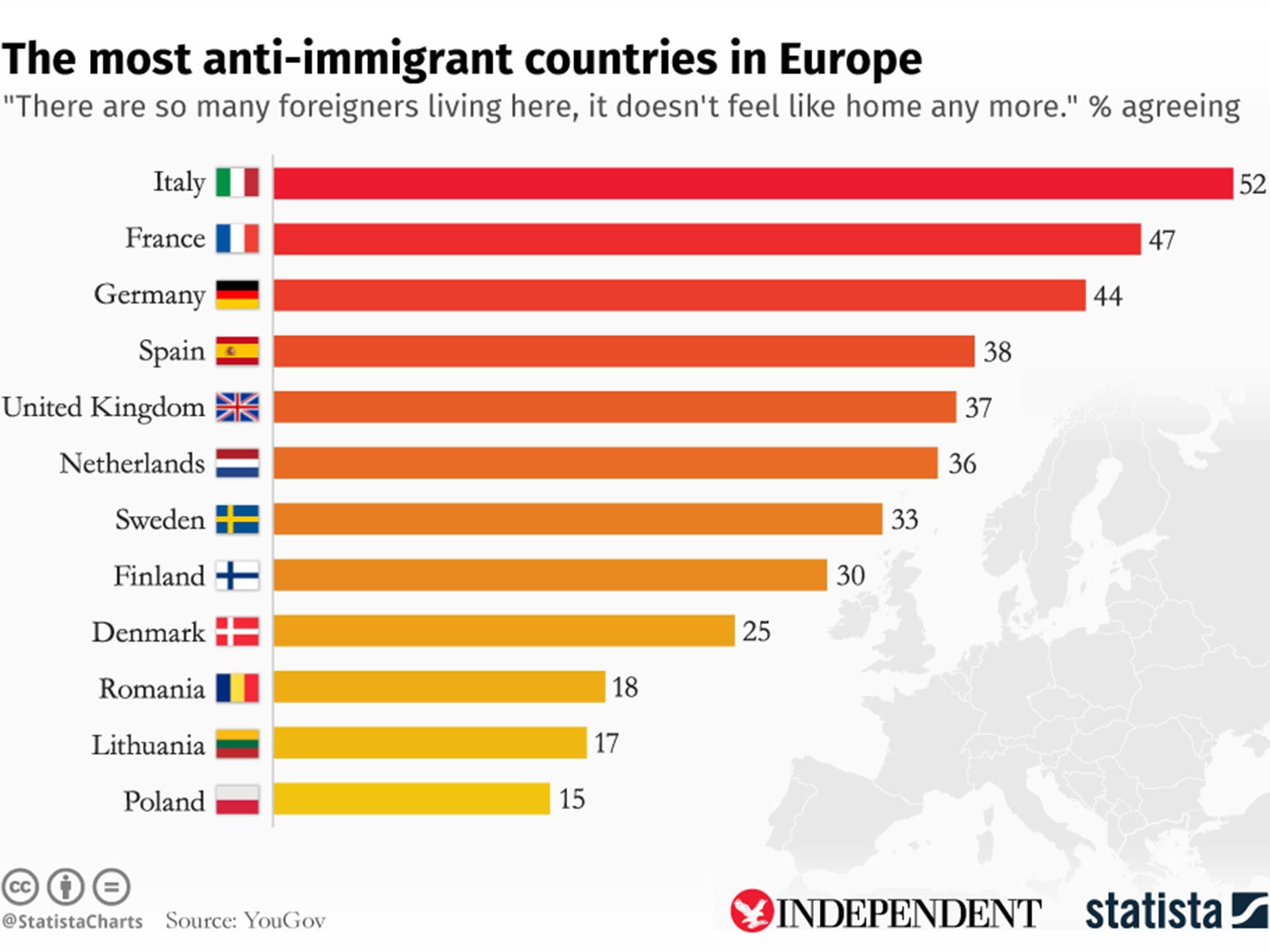The most anti-immigrant countries in Europe
Britain comes fifth among 12 countries polled

Your support helps us to tell the story
From reproductive rights to climate change to Big Tech, The Independent is on the ground when the story is developing. Whether it's investigating the financials of Elon Musk's pro-Trump PAC or producing our latest documentary, 'The A Word', which shines a light on the American women fighting for reproductive rights, we know how important it is to parse out the facts from the messaging.
At such a critical moment in US history, we need reporters on the ground. Your donation allows us to keep sending journalists to speak to both sides of the story.
The Independent is trusted by Americans across the entire political spectrum. And unlike many other quality news outlets, we choose not to lock Americans out of our reporting and analysis with paywalls. We believe quality journalism should be available to everyone, paid for by those who can afford it.
Your support makes all the difference.Nearly 40 per cent of Britons say they no longer feel at home because of immigration.
However, Italy is the most anti-immigrant country in Europe, according to a YouGov poll, with more than half of people agreeing with the statement: "There are so many foreigners living here, it doesn't feel like home any more."
French and German people are also highly likely to agree with the statement, at 47 per cent and 44 per cent respectively.
The chart below, by Statista, shows the UK as the fifth most anti-immigrant country in Europe, with 37 per cent agreeing with the statement.

That puts Britain in fifth place among the 12 countries polled, although more British people disagree with the statement (39 per cent) than agree.
A report into integration between different communities in Britain found there were areas which were struggling to cope with the pace and scale of change they faced as a result of immigration.
Poland, Lithuania and Romania are the least anti-immigrant countries, with between 15 and 18 per cent agreeing with the statement, likely due to the lower levels of immigration they have experienced.
YouGov found agreeing with the statement was one of the strongest correlations for whether or not a person holds authoritarian populist views.
For example, in Italy, nearly 70 per cent of people who hold authoritarian populist views agreed with the statement.
Joe Twyman, YouGov’s head of political and social research, said: “Building on YouGov’s previous research, this data shows clearly how the perceptions individuals have of immigration correlate strongly with whether or not they can be classified, by our measure, as Authoritarian Populists.
"The recent report into segregation and social exclusion by Dame Louise Casey highlights how such considerations can have an important impact for Britain. These results show the same could to be true for many other countries in Europe.”
Join our commenting forum
Join thought-provoking conversations, follow other Independent readers and see their replies
Comments